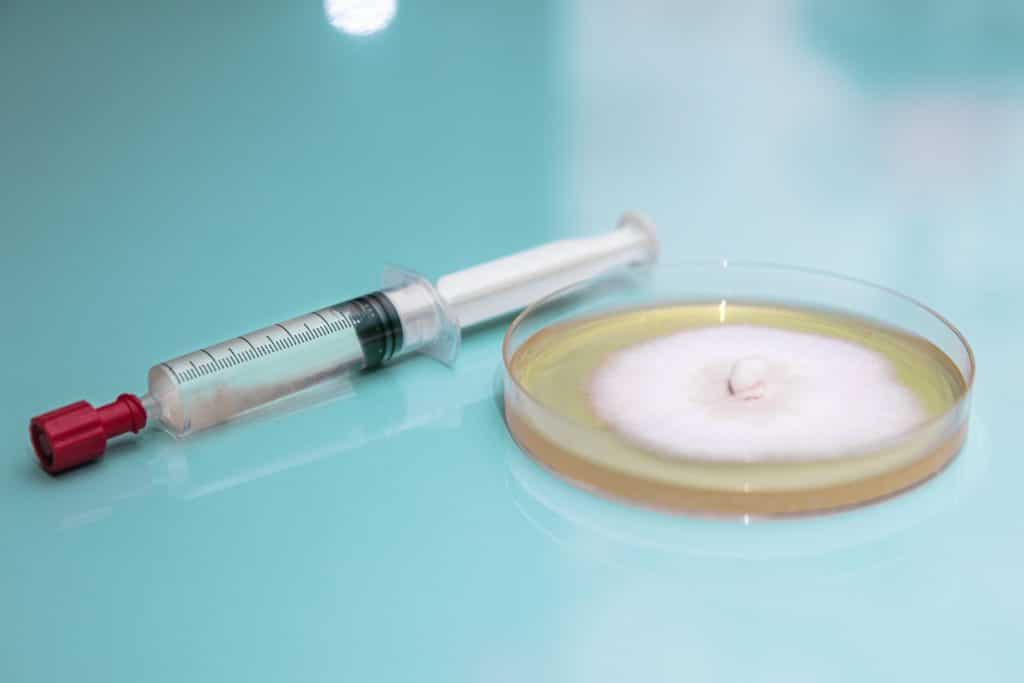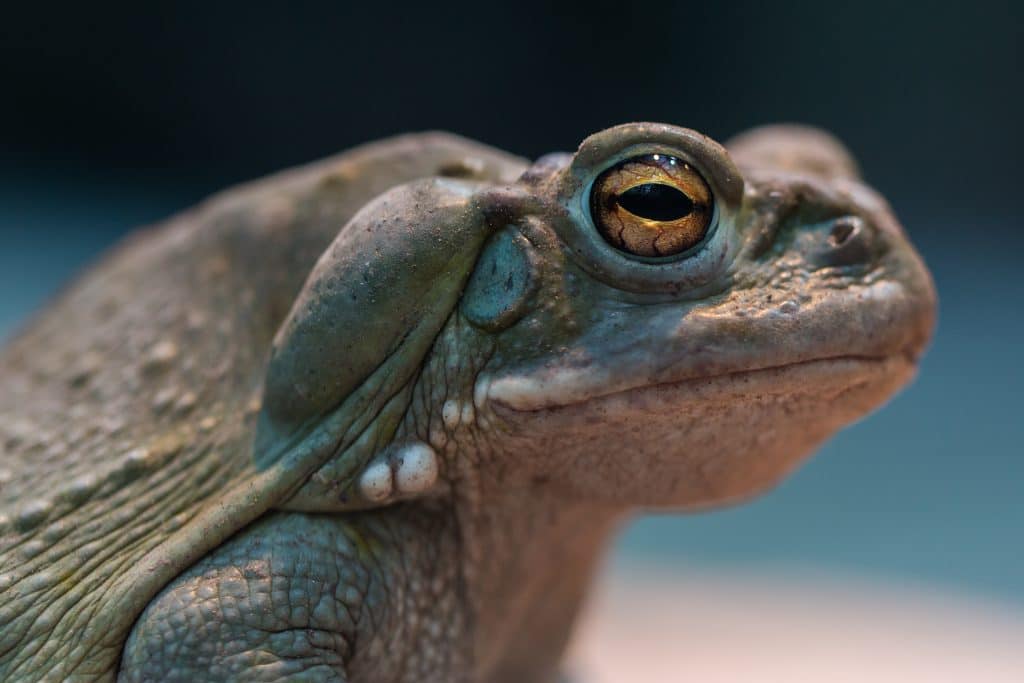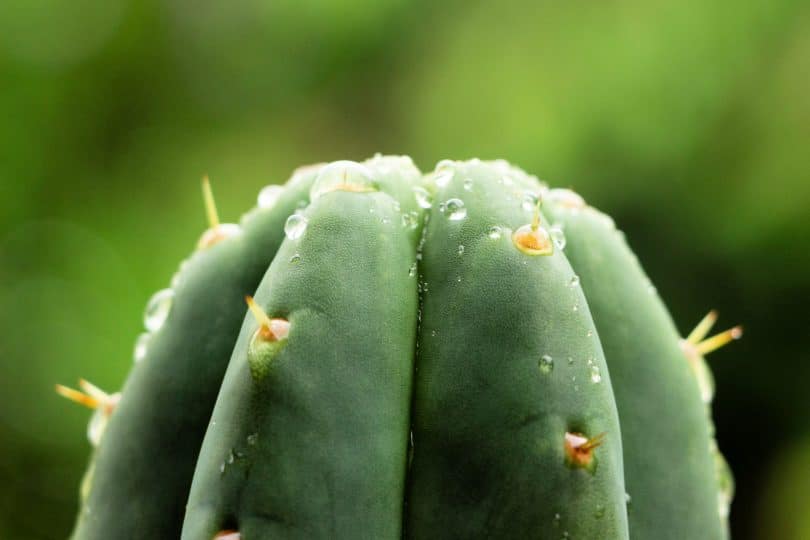Despite growing mainstream popularity, and unlike cannabis which was always widely available – psychedelics are much harder to find if you don’t have a connection. You shouldn’t be incredibly hard-pressed to track down a mushroom or MDMA dealer in your area, if you’re diligent; but stuff like LSD, DMT, and mescaline often pose a greater challenge.
With the rise of internet psychonaut communities, that too has become much easier, but then you’re left with questions of legality, and whether what you’re buying could possibly get you into trouble. Although the actual drugs themselves are 100% illegal to buy and sell online, there are still numerous products you can purchase that contain these compounds – and they are perfectly legal!
Check out our list of legal psychedelics and related products below, and to stay current on everything important happening in the industry, subscribe to The Cannadelics Weekly Newsletter. Also, it’ll get you premium access to deals on cannabis flowers, vapes, edibles, and much more! We’ve also got standout offers on cannabinoids, like HHC-O, Delta 8, Delta 9 THC, Delta-10 THC, THCO, THCV, THCP & HHC, which won’t kill your bank account. Head over to our “Best-of” lists to get these deals, and remember to enjoy responsibly!
Legal status of psychedelics in the U.S.
The federal laws regarding psychedelics are pretty cut and dry: they are overwhelmingly prohibited. So far, there is only one exception – ketamine/esketamine – two different versions of essentially the same drug (esketamine is an isomer of ketamine) that have received FDA approval for a handful of regulated medical uses. Other psychedelics, even those that are undergoing clinical trials like LSD, MDMA, and psilocybin, are all still on the list of Schedule 1 Controlled Substances.
Like cannabis, psychedelic drugs were not always illegal in the United States. Throughout the 1940s and 50s they were studied and utilized for their ability to treat mental health disorders that were proving resistant to standard pharmaceutical medications. Eventually, when the FDA banned entheogens, the research came to a screeching halt and patients were once again barred from these innovative treatments.
However, in recent years there has been a renewed public interest in the use of psychedelics in psychotherapy. Both MDMA and psilocybin have received ‘breakthrough therapy’ designations by the FDA for PTSD and severe depression, respectively, and both are currently undergoing clinical trials. This means a US federal government agency is pushing for the research and development of compounds with Schedule I listings. And this indicates that laws could be changing very soon.
So, what can you buy?
While you can’t legally buy psychedelic compounds themselves, you can purchase the products that are used to make these drugs. For example, psilocybin is illegal, but mushroom spore syringes are not. This is because the spores don’t contain any psilocybin yet, so they are legal by default. Also available are some psychedelics that are less common in the states, and so they aren’t well-known enough for regulators to start making laws against them.

First, let’s take a look at what the DEA has to say about psychedelic compounds:
“Unless specifically excepted or unless listed in another
schedule, any material, compound, mixture, or preparation, which
contains any quantity of the following hallucinogenic substances,
or which contains any of their salts, isomers, and salts of isomers
whenever the existence of such salts, isomers, and salts of isomers
is possible within the specific chemical designation:
(1) 3,4-methylenedioxy amphetamine.
(2) 5-methoxy-3,4-methylenedioxy amphetamine.
(3) 3,4,5-trimethoxy amphetamine.
(4) Bufotenine.
(5) Diethyltryptamine.
(6) Dimethyltryptamine.
(7) 4-methyl-2,5-diamethoxyamphetamine.
(8) Ibogaine.
(9) Lysergic acid diethylamide.
(10) Marihuana.
(11) Mescaline.
(12) Peyote.
(13) N-ethyl-3-piperidyl benzilate.
(14) N-methyl-3-piperidyl benzilate.
(15) Psilocybin.
(16) Psilocyn.
(17) Tetrahydrocannabinols”
That leaves us with numerous products that are legal by default, and countless others that are not quite legal, but also not heavily regulated. For example, some psychedelic (or psychedelic-adjacent plants) you can find easily online are:
- San Pedro and Peruvian Torch cactus (both contain mescaline)
- Egyptian Blue Lotus (said to have MDMA-like effects at high doses)
- Salvia Leaf (contains opioid-like compounds that can produce hallucinations and synesthesia)
- Banisteriopsis Caapi (used to make ayahuasca, paired with Chacruna Leaf)
- Hape Ritual Snuff (sacred shamanic tobacco snuff)
- Kratom (used as a natural pain reliever and mild stimulant)
- Kanna (contains mildly psychoactive alkaloids)
- Hawaiian Baby Woodrose (AKA Elephant Creeper, seeds contain LSA [d-lysergic acid amide])
- Mimosa Hostilis Bark (contains DMT)
- Ergine (AKA morning glory, seeds contain LSA [d-lysergic acid amide])
- Kava (mildly psychoactive and depressant properties)
- Damiana (mildly psychoactive, relaxing and helps with sleep)
- Mexican dream herb (Calea zacatechichi, said to induce lucid dreaming)
Additionally, you can buy a lot of ancillary products and supplies such as grow kits, mushroom spore prints, psilocybin spore syringes, liquid culture vials, reagent kits/drug testing kits, and so forth. What you can purchase depends on what state you live in, so you will have to look up regulations in your area for more specific details on what psychedelics are legal for you.
DMT-source plants
Legality is a funny concept, and understanding whether DMT containing plants – such as Mimosa Hostilis Bark, Chacruna Leaf, and Acacia confusa – are legal or not has become quite the topic of debate in the psychonaut community. Some believe it’s legal by technicality, falling into a sort of regulatory limbo, while others claim the FDA explicitly bans these products. So, which is the correct answer?
If we take the above statement: “… any material, compound, mixture, or preparation, which
contains any quantity of the following hallucinogenic substances…”, it seems relatively clear. But if we dissect the legal text a little bit more, some questions surface. Take into consideration how widely DMT is found in nature – it’s produced my countless animals (including humans) and thousands of plants, even some very common ones like the leaves of lemon and orange trees. There are even some plausible theories floating around that every living thing produces at least trace amounts of DMT. With that in mind, in would be impossible to regulate “any material” containing “any quantity” of DMT.
Overall, I think it’s safe to say that this definitely falls under a legal gray area. Although the government would probably like all DMT-containing plants to be illegal, and they may even go to the extent of regulating a few select ones, it would be extremely difficult to do on a larger scale, especially for a compound that has relatively low statistical use. But that doesn’t mean they are not trying. For example, shipments of Mimosa bark and other products used to extract DMT are often intercepted. And it’s illegal to own Bufo alvarius (or Incilius alvarius, the Colorado river toad, used in the production of 5-MeO-DMT) as a pet.

But if any material which contains any quantity of DMT is considered a Schedule I drug, then quite possibly, nearly all living things would be Schedule I – from your own lungs and brain to the citrus trees growing in your backyard. The law is unenforceable as it is currently written, and it would be hard to imagine someone getting prosecuted for possession of one of these plants (assuming they have a decent lawyer and there was no intent to distribute).
Keep in mind that although no law expressly bans all these plants and products, local law enforcement may still look at items of this nature unfavorably. Individual buyers are not likely to be targeted by federal law enforcement for small purchases, but local law enforcement could be a wildcard. Avoiding raising any suspicion from postal service workers, nosey neighbors, and local law enforcement is key to staying above board with these things.
Final thoughts on legal psychedelics
The psychedelics product market isn’t raging just yet (at least not domestically), but that doesn’t mean you can’t get your hands on some fun, interesting and legal products still. From mescaline-producing cacti to DMT-containing bark to psilocybin mushroom spores, there is no shortage of plant products to trip on; and if you know where to look, most can be found with relative ease.
Welcome all! Thanks for dropping by Cannadelics.com, a top offering for comprehensive news covering the burgeoning cannabis and psychedelics industries. Stop by daily for a dose of news on these dynamically changing fields, and sign up for The Cannadelics Weekly Newsletter, so you’re up on everything important going on.









